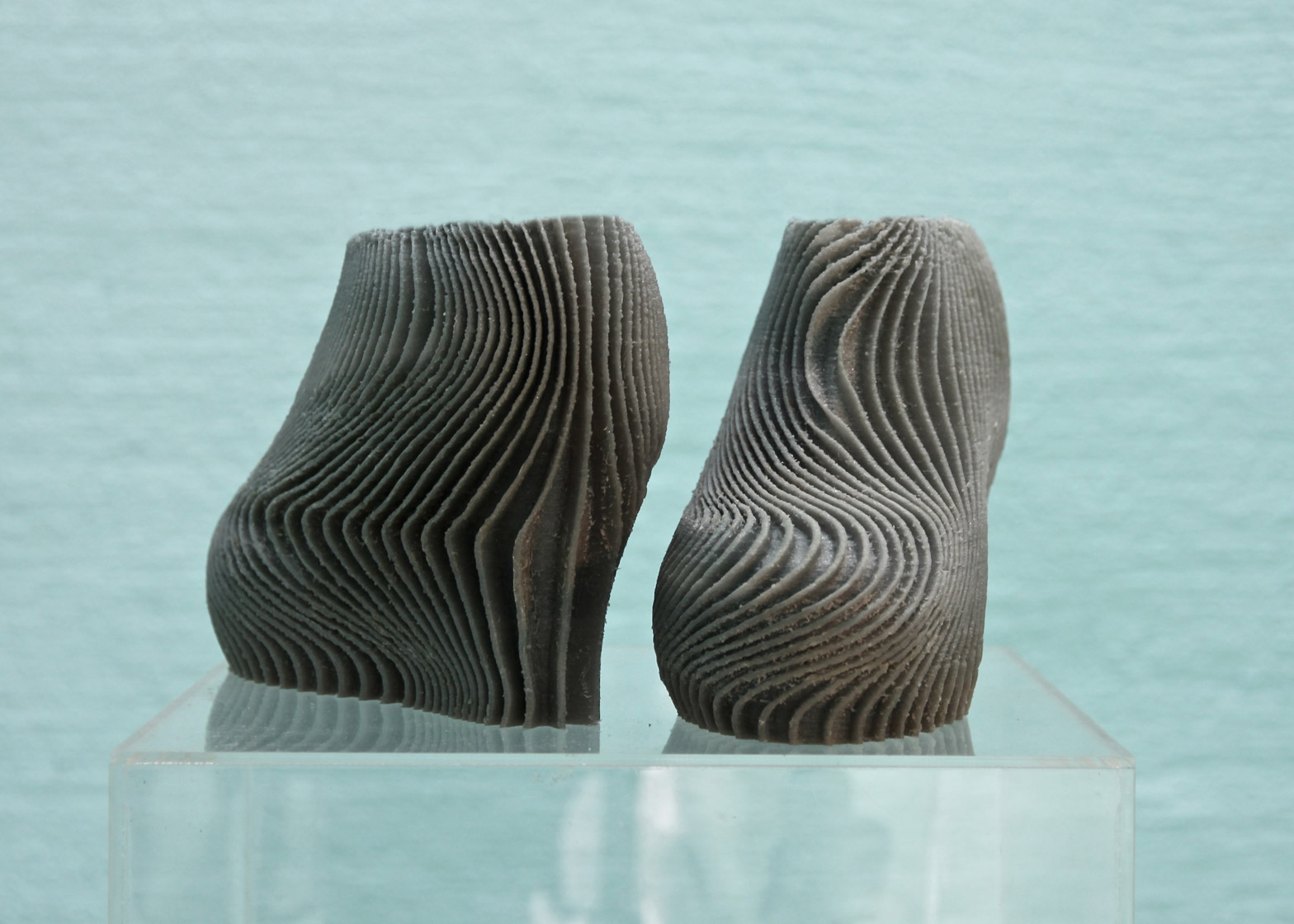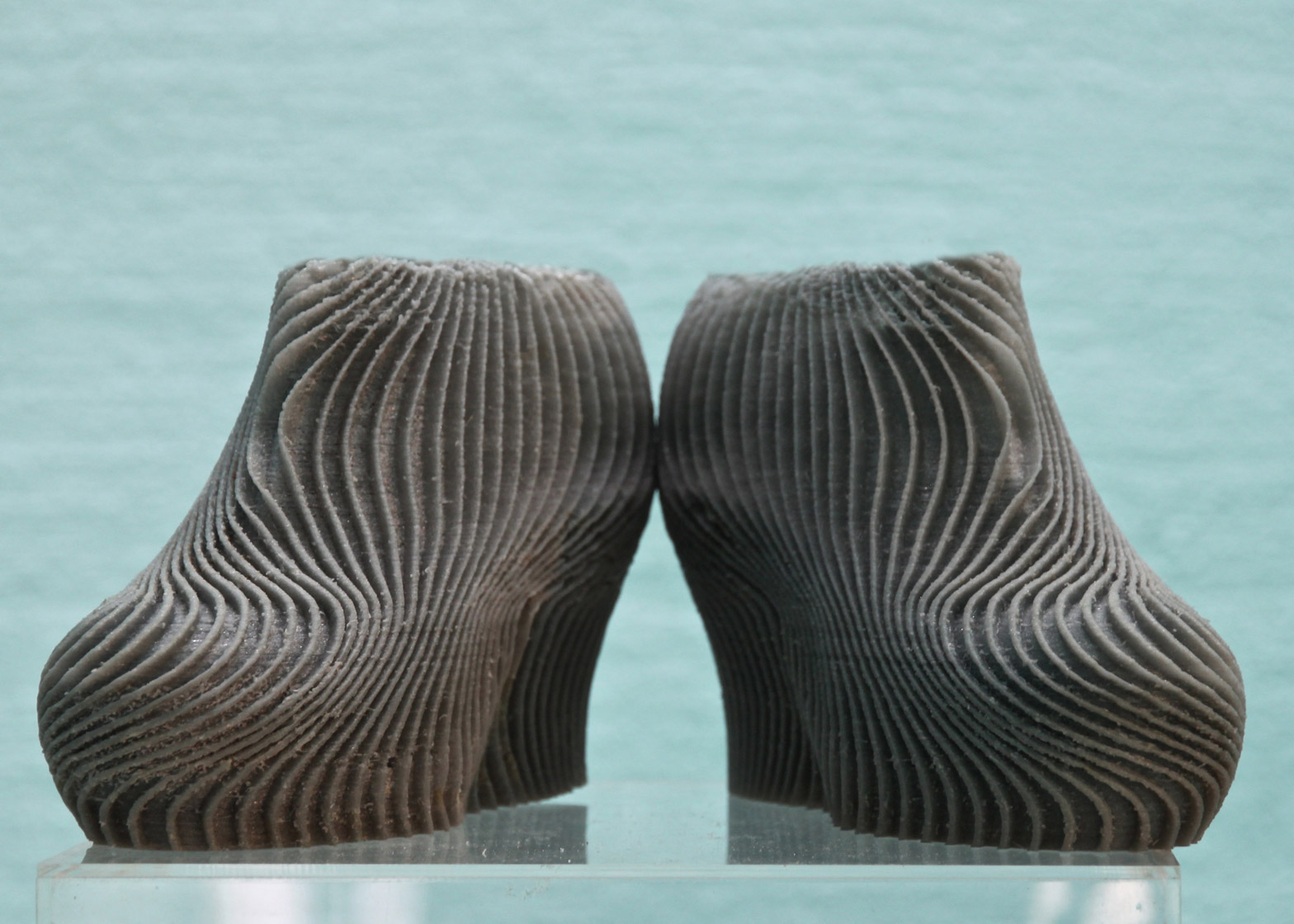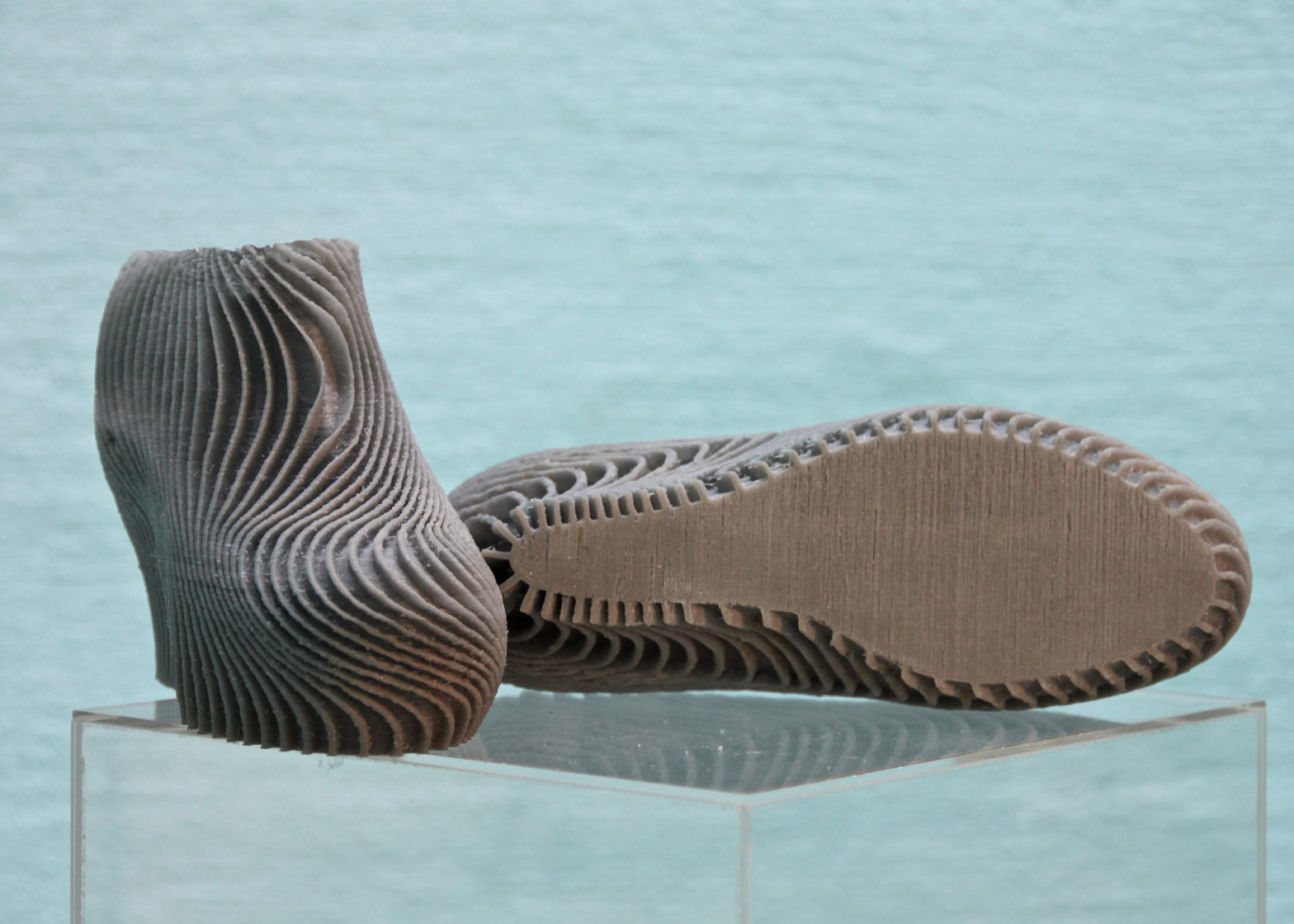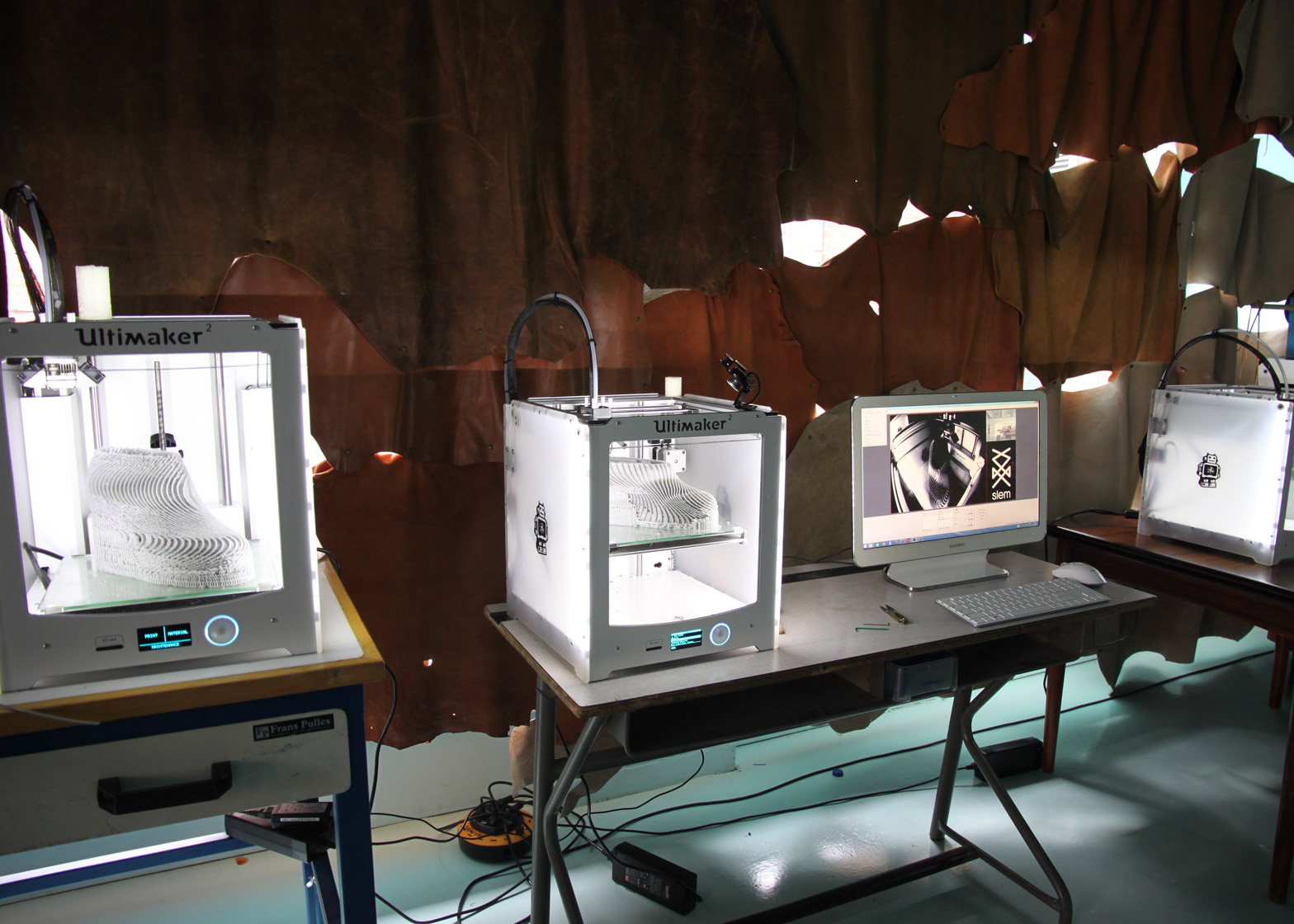Dutch Design Week 2015: designer Troy Nachtigall has used scans of feet to create a pair of 3D-printed shoes personalised for a Dutch politician, which he claims are more comfortable than typically manufactured footwear (+ slideshow).
Nachtigall, along with fashion designer Pauline van Dongen and industrial designer Leonie Tenthof van Noorden, were commissioned by Dutch minister of education, innovation and science, Jet Bussemaker, to create an outfit for her to wear at the Netherlands' Budget Day.
Given the busy nature of the event, Nachtigall's design had to be comfortable enough to wear throughout the whole day, while demonstrating the future of footwear and fashion.
To achieve this, the team set about creating a pair of shoes that were completely modelled on the minister's feet, and tailored to her day-to-day behaviour.
"We started with a 3D body scan of the minister from three different perspectives so we could see what it would look like when she was walking," Nachtigall told Dezeen. "We analysed her foot very closely and came up with a pair of shoes made up of flexible filaments".
After examining earlier 3D-printed footwear designs, the designers opted for a softer material that would provide the comfort of natural fabrics and prevent the shoes from rubbing.
"As far as we can tell, nobody has made a pair of comfortable 3D-printed shoes before," Nachtigall said. "Pauline van Dongen with Freedom of Creation made an amazing pair of high heels that were 3D-printed back in 2008 or 2009, but after about four or five hours of wear would start giving you blisters. So we needed a softer material that could behave more like leather, or the canvas that we wear today."
Constructed entirely from Filaflex – a filament material created by Spanish 3D-printing firm Recreus – the shoes took 100 hours in total to print, and are made up of a series of soft, vertical curving lines that move to increase flexibility.
"Using the algorithms that Leonie came up with, we invented a shoe that is stable where it needs to be stable, and soft where it needs to be soft," said Nachtigall. "They're comfortable, and comfortability was our main goal."
Along with the foot scans, the team also took into account what the user would be doing during a typical day in order to determine the shoe's "behavioural fit".
"Every time we make a pair of shoes for a person, we ask a lot of questions about who they are, what they do, and what they are going to do with these shoes," Nachtigall said. "We're calling it behavioural fit, because it's about how the shoes fit, and how they behave."
"Beyond just being more comfortable than a normal pair of shoes, the shoes are made from a single modern material, which is a more recyclable option," he added.
The shoes were manufactured by Dutch technology company SLEM, and are on show at the Kazerne exhibition space in Eindhoven as part of Dutch Design Week.
Dutch Design Week takes place across Eindhoven from 17 to 25 October. Other designs on show included a concept car made from reflective cuboids at the Klokgebouw building, and a range of downloadable do-it-yourself clothing presented at concept store You Are Here.
Recently, Adidas unveiled a 3D-printed shoe sole that can be tailored to the exact contours of the wearer's feet, whilst Dutch footwear brand United Nude created a pair of shoes with eight-inch-high 3D-printed heels.




